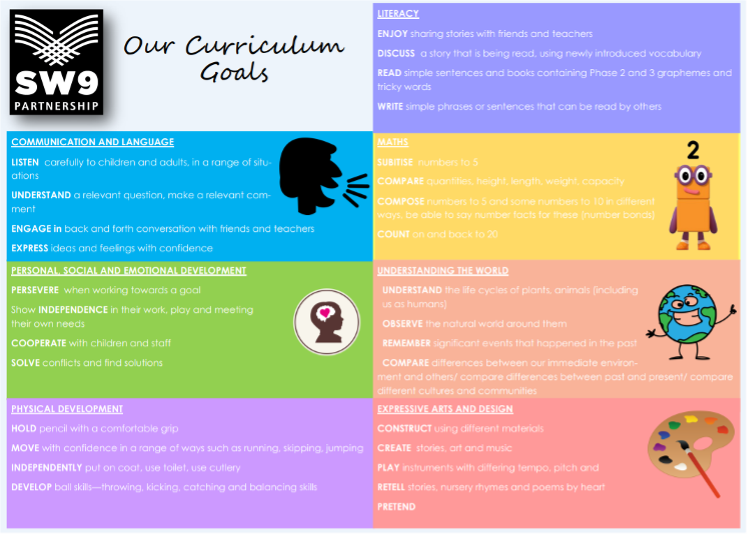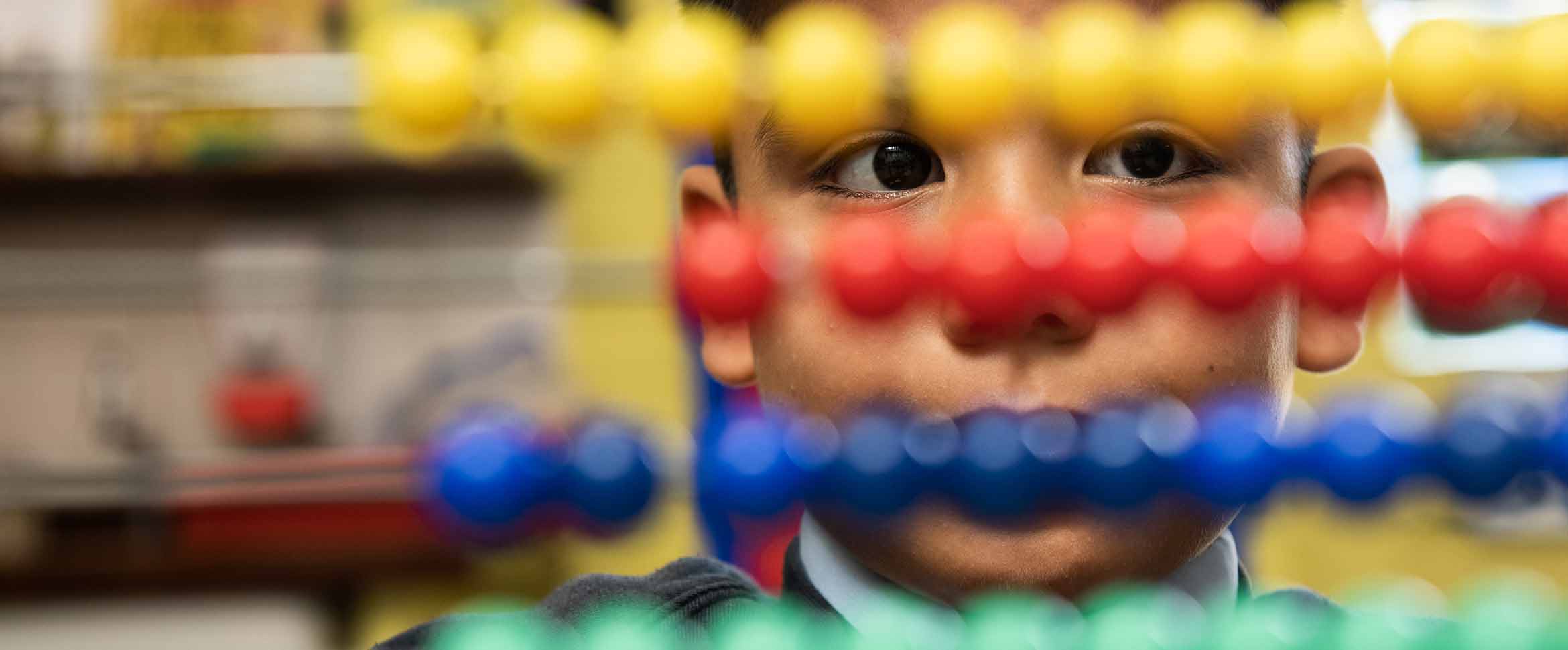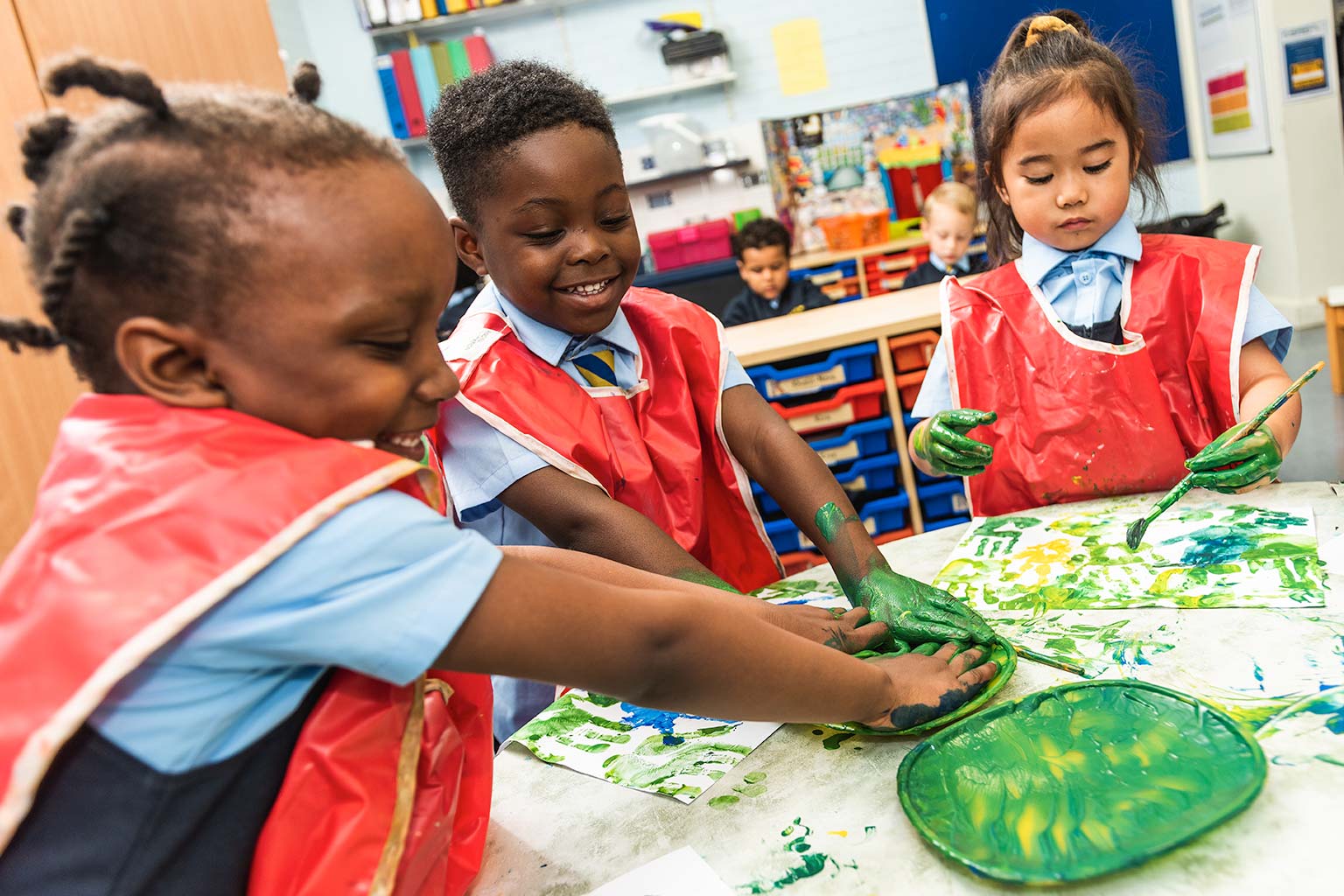Our Vision
At St Andrew’s our vision is to inspire our children to be confident individuals, who are excited about learning and curious about the world they live in. We want our children to come to school every day eager to learn new things, confident to try new experiences and enthusiastic about new challenges. Our curriculum is designed to recognise children’s prior learning, both from previous settings and their experiences at home. It is tailored to meet the needs of all of the children in our diverse school community. Year after year we aim to improve on how the curriculum is delivered, adapt it according to the needs of different cohorts and take into account the topics that the children are passionate about. In the Early Years, we place a strong emphasis on the Prime Areas of learning; Personal, Social and Emotional Development and Communication and Language as we know these are key indicators in supporting children to be successful learners throughout their time at school.
Enabling Environments
We place great emphasis on making our EYFS classrooms a place where children feel safe, valued and motivated to learn. Our enabling environments and warm, skilful adult interactions support the children as they begin to link learning to their play and exploration right from the start. We believe that high level engagement ensures high level attainment. We therefore provide an engaging curriculum that maximises opportunities for meaningful cross-curricular links and learning experiences, as well as promoting the unique child by offering extended periods of play, appropriate to the development of the child. We follow children’s interests and ideas to foster a lifelong love of learning both in and outside of school.
In our EYFS classes we create an atmosphere where children are relaxed and at ease with the adults, but where mutual respect is paramount. We have high expectations for behaviour and learning, with all adults using consistent positive recognition strategies which help children to follow and understand our school values and rules: Kindness, Peacefulness, Perseverance, Love, Joy and Faithfulness.
Our Curriculum Goals
By the end of the Reception year, our intent is to ensure that all children make at least good progress from their starting points are equipped with the skills and knowledge to have a smooth transition into Year 1. As a team, we established some curriculum goals that we aim for all children to achieve by the end of their Reception year that we believe will allow them to be successful in KS1.

How do we plan and teach in the Early Years?
Each half term, EYFS staff introduce a new theme to provide inspiration for learning, whilst providing the flexibility for children to follow their own interests and ideas. Children learn through a balance of child-initiated and adult-directed activities.
The timetable is structured so that children have directed teaching during the day and this is followed up through small-group work in order to check for understanding, address misconceptions, provide feedback and also further challenge where required. The timetable changes throughout the year to take into consideration the changing needs of the children.
We aim to apply a ‘keep up’ rather than ‘catch up’ approach. This means that staff in Early Years are aware of each individual child’s abilities and next steps.
Children are provided with plenty of time to engage in ‘exploration’ throughout the variety of experiences carefully planned to engage and challenge them in the provision. The curriculum is planned for the inside and outside classrooms and equal importance is given to learning in both areas.
English / Literacy
Reading and story time is at the heart of our curriculum and our aim is to encourage a love of reading right from the start. Children listen to multiple stories a day, both topic related and interest-led. Children have daily Literacy inputs where they develop the skills required for future success.
We use story scribing as a way for children to develop their love of writing stories. Children are given the freedom to write stories at any point in the day and know to ask an adult to help them if they need. At the beginning of the year, the focus is on the oral storytelling and as the year progresses we see children flourish into confident and creative story tellers.
Children in Reception also learn a number of topic related poems across the year through the use of Poetry Basket. By the end of the year, children are expected to know at least 18 poems by heart.
Phonics
We follow Little Wandle Letters and Sounds Revised throughout EYFS and KS1, where phonics is taught for 30 minutes a day. In Reception, we build from 10-minute lessons, with additional daily oral blending games, to the full-length lesson as quickly as possible.
Children make a strong start in Reception: teaching begins in Week 2 of the Autumn term and we follow the Little Wandle Letters and Sounds Reviews expectations of progress.
At the beginning of Reception, we also spend lots of time focusing on Phase 1 skills which concentrates on developing children's speaking and listening skills and lays the foundations for future reading success. The emphasis during Phase 1 interventions is to get children attuned to the sounds around them and ready to begin blending skills.
Children are encouraged to read at home and are listened to 3 times per week in school with a focus on decoding, prosody and comprehension. They are given books that match Little Wandle and also their phonics knowledge in order for them to apply their learning with the aim of becoming successful, confident and fluent readers. Children then take the book home to continue to develop their fluency.
Mathematics
In Reception, we follow Mastering Number NCETM to support the Number and Numerical Patterns Early Learning Goals. Children have a daily maths lesson that supports them to develop fluency, revisit key concepts and address misconceptions. There is a focus on the following principles; subitising, cardinality, ordinality and counting, composition and comparison. Shape, space and measure is taught through discrete sessions as well as through activities and opportunities in the environment.
High quality learning environments and meaningful interactions with adults, support children in developing mathematical thinking and discussion. Pupils learn through games and tasks using concrete manipulatives and pictorial structures and representations which are then rehearsed applied and recorded within their own child-led exploration.

Religious Education
As a church school, our curriculum is designed to promote our school values. RE is also taught discretely once a week, however we also look at different religious festivals throughout the year. Children take part in Collective Worship both in class and with the rest of the school.
Wider Curriculum
Our wider curriculum is taught through the learning areas; ‘Understanding of the World’ and ‘Expressive Arts and Design.’ Our curriculum document outlines the key teaching that happens throughout the year, that allows children to develop skills and knowledge required to support them throughout their school journey. Although the key moments are planned for, they are not limited to what is on our curriculum document. In Early Years, each moment is a teaching moment and unplanned mini-projects happen regularly throughout the year.
EYFS staff have a good understanding of how ELG’s feed into the National Curriculum through our robust planning. In reverse, colleagues throughout the school are also aware of the key ELG’s that link to each foundation subject and the progression of the subject.
Our inclusive approach means that all children learn together, but we have a range of additional intervention and support for children who may not be reaching their potential, or are showing a greater depth of understanding and need further challenge. This includes, for example, sessions for developing speech and language, social skills, fine motor skills, phonics, and mathematics.

How we evaluate learning in the Early Years
Baseline
Prior to children starting, staff spend time speaking to the child’s parents, previous settings and read previous learning journey’s to gain an understanding of the whole child and where they are at. During the first half term in Nursery or Reception, all staff use ongoing assessments, observations and conversations with the child to develop a baseline assessment. This identifies each individual’s starting points in all areas so we can plan experiences to ensure progress. The following baseline assessments are also carried out.
The RBA (Statutory Reception Baseline Assessment)
This assessment focuses on ‘Language, Communication and Literacy,’ and ‘Mathematics.’ The purpose of this is to show the progress children make from Reception until the end of KS2.
Wellcomm
At the start of the year we use Wellcomm to assess children’s starting points. The assessment informs us if the child is at expected for their age or requires intervention. If a child scores red, they will receive small group intervention according to their need and be assessed throughout the year to see impact.
Ongoing Observation
All ongoing observations are used to inform weekly planning and identify children’s next steps. This formative assessment does not involve prolonged periods of time away from the children and excessive paper work. Practitioners draw on their knowledge of the child and their own expert professional judgements through discussions with other practitioners, photographs and physical examples such as a child’s drawing / making.
Focus Weeks
Throughout the year, children will be the subject of ‘Focus Weeks’. Within this week, the staff team will decide on agreed targets for the individual child for that point in time and ensure that additional focus is placed on them within this week, in order for them to meet their targets.
Phonics Assessment
Phonic assessments are carried out using Little Wandle Letters and Sounds assessments every half term to quickly identify pupils that are not making expected progress. Our aim is for children to ‘keep up’ rather than ‘catch up’ where possible.
Assessment Weeks
Assessments are completed and inputted four times per year and shared with parents at parent-teacher meetings, whereby the Class Teacher updates the progress children have made.
EYFSP
In the Summer term, the EYFSP is completed where teacher judge whether the child has met each of the 17 ELG’s. They will be assessed as either ‘emerging’ or ‘expected.’ Whilst there is no judgement to state if a child is exceeding beyond an ELG, teachers, have a duty to provide a narrative for both parents and the Year 1 teacher.
Impact is also evident through our successful transitions into Year 1. EYFS staff have a good understanding of how ELG’s link to the National Curriculum, and through our robust planning and delivery across the spectrum of subjects – both core and foundation - children leave the EYFS stage with the skills, knowledge and confidence to continue their journey as scientists, historians, artists and geographers.
